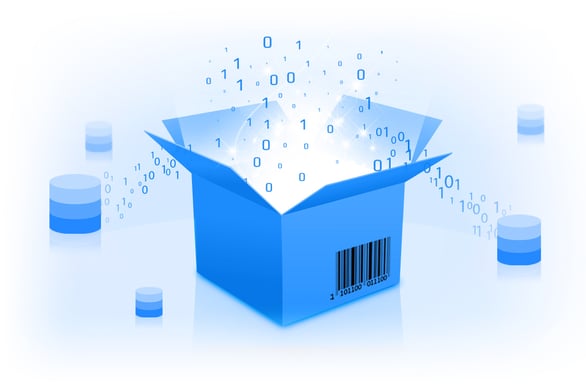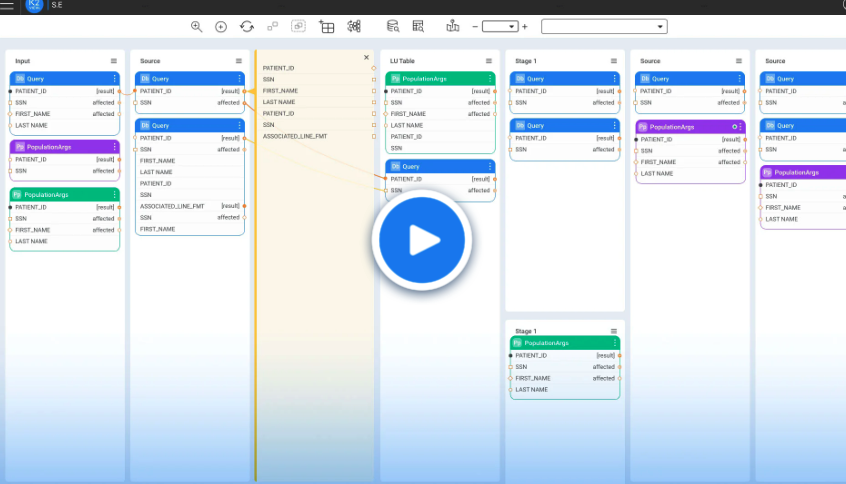BeyondData mesh principles are concepts including decentralized data ownership, data products, self-service provisioning and federated governance. Here's 1 more.. Read on.
Table of Contents
What are the Data Mesh Principles?
Understanding the 4 Original Data Mesh Principles
The 5th Principle: Data Control is Centralized
Put the Data Mesh Principles to Best Use
Make the Most of the Data Mesh Principles with a Data Product Platform
What are the Data Mesh Principles?
The data mesh framework is driven by the simple philosophy that stakeholders within business domains understand their data and data needs better than anyone else. Therefore, they should have the ability to create, access, and control their own data products.
Data mesh, which is oriented to business domains instead of technology stacks, enables data consumers to reap the value of analytical and operational data at scale.
There are 4 core principles that underpin the data mesh framework:
-
Data ownership and architecture is domain-oriented and decentralized
-
Data is delivered as a product
-
Data infrastructure is a self-service data platform
-
Data governance is federated
In addition to these 4 principles, we propose a 5th, which has emerged through our data mesh implementations at large enterprises:
-
Data control is centralized
Keep reading to learn about all 5 data mesh principles, and how a data product approach to data mesh architecture enables businesses to capitalize on their most valuable assets.
Understanding the 4 Original Data Mesh Principles
Here’s a deeper explanation of the four data mesh principles.
-
Data ownership and architecture is domain-oriented and decentralized
Instead of relying on centralized data teams to manage, maintain, and provision data, data mesh is founded on the concept of decentralization, and distribution of responsibility to business domains. By enabling business domains — and data stakeholders themselves — to take ownership of their data, enterprises will be better positioned to increase agility in the face of continuous change, and support scalability.
-
Data is organized and delivered as a product
Data products allow you to resolve the challenges of fragmented and siloed data that lead to the accumulation of “dark data” and prevent businesses from capitalizing on their data assets. That's because data products force you to address data quality in the same way you'd think about product quality.

Data products access data from multiple sources in real time.
According to the data-as-a-product principles, data products – comprised of clean, fresh, and trusted data – are delivered to any data consumer, anytime, anywhere, based on permissions and roles.
-
Data infrastructure is a self-service data platform
The principle of a self-service data product platform allows qualified users to easily discover, access and share data products, while shielding them from the complexities inherent in underlying systems. Enabled by new levels of abstraction and automation, access to data is instant, making it possible for data consumers to query and share relevant data on demand.
-
Data governance is federated
The fourth principle of federated computational governance means each domain adheres to a global set of rules and standards related to privacy, access controls, quality, and compliance. A federated approach to data governance ensures quality, autonomy and interoperability among data products, while supporting compliance.
The 5th Principle: Data Control is Centralized
The shift to a decentralized, distributed data architecture is occurring at full force. The benefits of data mesh used in conjunction with a data lake include domain autonomy, self-service for data consumers, increased agility, and reduced reliance on centralized data teams.
But without some level of centralized control, data mesh implementation can suffer from 3 points of failure:
-
Duplication of data products
Consider a “Customer 360” data product, which prepares and delivers a complete, real-time dataset for a customer. If marketing, sales, and customer care create their own customer data product to serve their respective needs, data products might be duplicated, and we’ll never know which is single source of truth.
-
Proliferation of data integration tools
We may have multiple tools to fix the same problem, or we may be using the wrong tools for the wrong job, etc. We need a centralized body that prescribes which tools to use, when.
-
Lack of knowledge sharing
If we don’t share best practices, we’ll be more prone to repeat mistakes, and we’ll miss out on the opportunity to move more rapidly, and leverage successes across domains.
What’s needed is a Center of Excellence, a centralized data organization that’s responsible for ensuring coordination, collaboration, and standardization of processes and tools across business domains. It equips the domains with the right tools, knowledge, and best practices to create, manage, and deliver data products. It’s also responsible for establishing and enforcing the company’s overall data quality, security, and privacy standards.

A Center of Excellence assures that data standards are kept on target.
By applying a global set of standards, you ensure that data product developers, in each domain, avoid duplication, maintain data integrity, and adhere to your company’s best practices. These standards also support the sharing of common data products across domains to ensure data consistency and scalability.
Put the Data Mesh Principles to Best Use
The principles of a decentralized data mesh architecture that democratizes data at scale, is capturing the attention of enterprises that strive for greater agility.
However, determining if data mesh is right for you, and implementing it correctly, is not always simple.
By understanding the 4 core data mesh principles, plus our 5th, you’ll be in a much better position to ensure data mesh success.
These guiding principles not only provide practical guidance on data mesh functionality, but they also create the correct mindset in the data consumers themselves. While individual business units require data autonomy, a serious commitment to centralized control is fundamental to success.
Make the Most of the Data Mesh Principles with a Data Product Platform
A data mesh data product solution, with the 5 principles built in, helps organizations transition to a data mesh architecture easily and seamlessly.
When deployed in a data mesh architecture, a Data Product Platform allows enterprises to manage, store, share, and operationalize their data more effectively.
It delivers a complete view of each business entity’s data, while ensuring data consistency and reliability across domains. With the ability to set various rules for compliance, best practices, and security protocols, a Data Product Platform lets you reap all the benefits of data mesh, without the risk.













